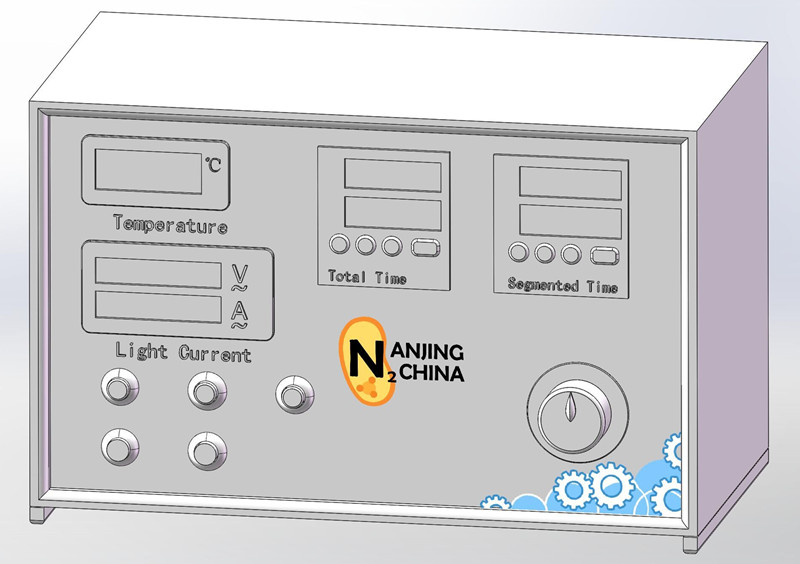| Line 131: | Line 131: | ||
<div class="word"> | <div class="word"> | ||
<div style="position:absolute; top:-90px; z-index:3; left:-10px;"> | <div style="position:absolute; top:-90px; z-index:3; left:-10px;"> | ||
| − | <img src="https://static.igem.org/mediawiki/2018/ | + | <img src="https://static.igem.org/mediawiki/2018/4/4c/T--Nanjing-China--PROJECT_h.png" width="45%" /></div> |
<div class="word-1" style="height:20px;"></div> | <div class="word-1" style="height:20px;"></div> | ||
</div> | </div> | ||
| Line 142: | Line 142: | ||
<p>Another problem is that when xenon modulator tube is illuminating, it would heat the air inside incubator, thus making the environment unfavorable for our engineered strain. To solve this problem, we place a reflux condenser to cool the xenon modulator tube, keeping the most suitable temperature. </p> | <p>Another problem is that when xenon modulator tube is illuminating, it would heat the air inside incubator, thus making the environment unfavorable for our engineered strain. To solve this problem, we place a reflux condenser to cool the xenon modulator tube, keeping the most suitable temperature. </p> | ||
<img src="https://static.igem.org/mediawiki/2018/f/f5/T--Nanjing-China--device-li.jpg" width="60%" /> | <img src="https://static.igem.org/mediawiki/2018/f/f5/T--Nanjing-China--device-li.jpg" width="60%" /> | ||
| − | <p>The control module is the brain of the entire device. It directly controls the temperature inside the incubator and the speed of shaker. The illumination intensity can also be regulated by altering the position of the xenon modulator tube.</p> | + | <p>The control module is the brain of the entire device. It directly controls the temperature inside the incubator and the speed of shaker. The ill module is the brain of the entire device. The illumination intensity can also be regulated by altering the position of the xenon modulator tube.</p> |
<img src="https://static.igem.org/mediawiki/2018/7/70/T--Nanjing-China--device-cc.jpg" width="60%" /> | <img src="https://static.igem.org/mediawiki/2018/7/70/T--Nanjing-China--device-cc.jpg" width="60%" /> | ||
<p>Our device can not only be applied to nitrogen fixation process, but also serve as a reactor for other similar light-driven reactions, such as hydrogen production and carbon fixation. We believe, after further promotion it will have a fairly promising prospect.</p> | <p>Our device can not only be applied to nitrogen fixation process, but also serve as a reactor for other similar light-driven reactions, such as hydrogen production and carbon fixation. We believe, after further promotion it will have a fairly promising prospect.</p> | ||
Revision as of 02:33, 11 October 2018


In order to apply our system to practical use, we also designed a device consisting of 4 modules: incubation, illumination, control and condensation. In our design draft, we hide all the tube-like parts to make the main body of the device clearer.

The incubation module is a shaker inside an incubator which can shake the flask, so that the engineered strain can grow and participate in reaction in agreeable conditions.

For the illumination module, we choose xenon modulator tube as the light source. However, it requires high voltage to be excited, so we also add a potential transformer to convert 220 voltage to higher voltage.
Another problem is that when xenon modulator tube is illuminating, it would heat the air inside incubator, thus making the environment unfavorable for our engineered strain. To solve this problem, we place a reflux condenser to cool the xenon modulator tube, keeping the most suitable temperature.

The control module is the brain of the entire device. It directly controls the temperature inside the incubator and the speed of shaker. The ill module is the brain of the entire device. The illumination intensity can also be regulated by altering the position of the xenon modulator tube.

Our device can not only be applied to nitrogen fixation process, but also serve as a reactor for other similar light-driven reactions, such as hydrogen production and carbon fixation. We believe, after further promotion it will have a fairly promising prospect.






